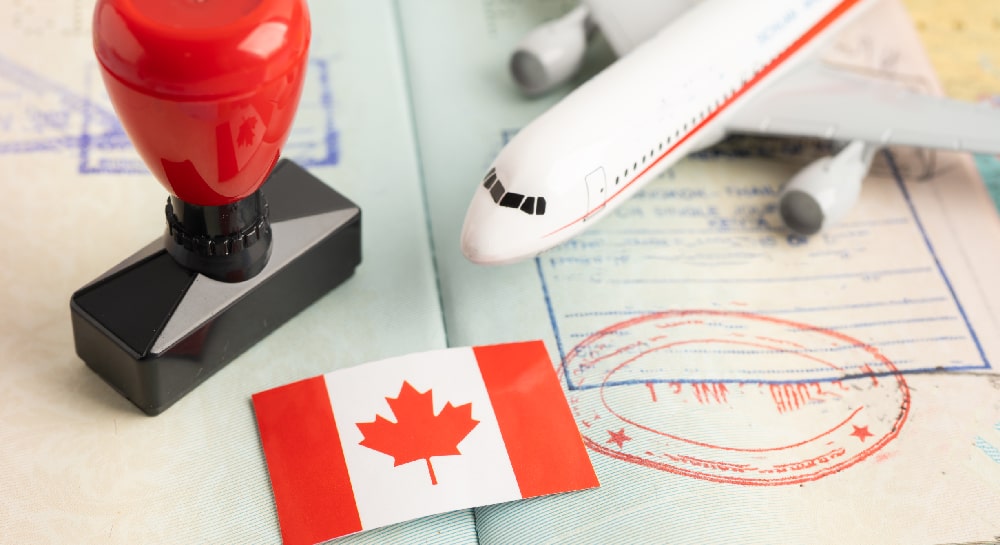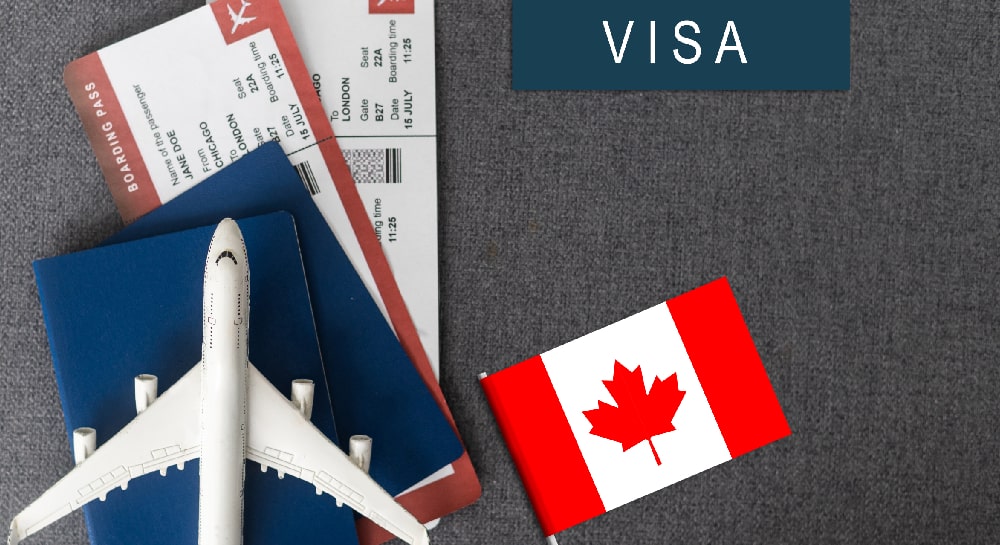Have you decided to combine your pharmacy skills with the eye-catching landscapes of Austria? With its rich history, stunning landscapes, and high standard of living, Austria is an enticing destination for pharmacists seeking to expand their horizons. Stay with us in this article to learn A to Z and what to do to bring your dream to fruition.
How to Work as a Pharmacist in Austria?
To immigrate to Austria as a pharmacist and start your career there, you should follow specific steps which are listed below:
- Recognition of Qualifications
- German Language Proficiency
- Obtaining a Work Permit and Red-White-Red Card
- Job Search Strategies in the Austrian Pharmacy Sector
- Visa Application Process
- Residence Registration
- Registration with the Austrian Chamber of Pharmacists
- Securing Professional Liability Insurance
- Continual Professional Development Requirements
- Cultural Adaptation in the Austrian Healthcare System
Step 1. Recognition of Qualifications
Your first step in your journey to immigrate to Austria as a pharmacist is to get your pharmaceutical qualifications recognized in Austria. This process is overseen by the Austrian Federal Ministry of Education, Science and Research (BMBWF). You may need an equivalency examination or additional training to meet Austrian standards.
Undergoing an examination or training is often required when your pharmaceutical qualifications don’t directly align with Austrian standards. The equivalency examination tests your knowledge and skills to ensure they meet Austria’s requirements. If gaps are identified, you might be required to undertake additional training or coursework to bridge these gaps. This process ensures that your expertise is on par with Austrian healthcare professionals.
Step 2. German Language Proficiency
Proficiency in German is essential for those planning to immigrate to Austria as pharmacists. It would be best if you aimed for a B2 level according to the Common European Framework of Reference for Languages (CEFR).
To prove your German language proficiency for working as a pharmacist in Austria, you will likely need to pass a recognized language test, such as the ÖSD (Österreichisches Sprachdiplom Deutsch) or TestDaF, which tests your ability to communicate effectively in a professional and everyday context at a B2 level as per the CEFR standards.
Examples of institutes where you can learn German include the Goethe-Institut, which has locations worldwide, and local language schools in Austria like DeutschAkademie and Inlingua. Online platforms like Duolingo or Rosetta Stone also offer German language courses.
Step 3. Obtaining a Work Permit and Red-White-Red Card
As a non-EU/EEA citizen, you must obtain a work permit. One standard route is the Red-White-Red Card, which is based on a points system that considers factors like professional experience, language skills, and age. Stay with us in this article to learn about the Red-White-Red Card in full detail.
Step 4. Job Search Strategies in the Austrian Pharmacy Sector
Start looking for job opportunities in Austrian pharmacies, hospitals, or related pharmaceutical sectors. Websites like AMS (Austrian Public Employment Service), LinkedIn, and industry-specific job portals can be useful. Networking and attending pharmaceutical conferences or seminars in Austria can also be beneficial.
Step 5. Visa Application Process
For people from non-EU/EEA countries planning to Immigrate to Austria as a pharmacist, the visa application process typically involves applying for a D visa (national visa) if the intended stay is longer than six months, which is the case for most employment situations. This application is submitted to your home country’s Austrian embassy or consulate.
Necessary documents usually include a completed application form, a valid passport, passport-sized photos, proof of accommodation in Austria, a job offer or contract, evidence of financial ability to support your stay, health insurance coverage, and a police clearance certificate from your home country.
The application also requires proof of your professional qualifications as a pharmacist and, if applicable, the Red-White-Red Card or confirmation that you are eligible for it. The processing time and specific requirements can vary, so it’s essential to consult the nearest Austrian diplomatic mission for the most accurate and detailed information. This visa serves as an entry permit, and upon arrival in Austria, you’ll need to apply for a residence permit for more extended stays.
Step 6. Residence Registration
Upon arriving in Austria, it’s mandatory to register your residence with the local authorities, known as the “Meldeamt” or “Einwohnermeldeamt,” typically within three days. This process is called “Anmeldung”. It’s done in person at the local registration office of the area where you reside. You must bring a valid identification document (like your passport), a rental contract, or a statement from the property owner confirming your residence, and, if applicable, your visa or Red-White-Red Card.
For accommodation in Austria, you can use Willhaben.at for a range of rental options, ImmobilienScout24.at for detailed listings across cities, and DerStandard.at/Immobilien for diverse real estate choices. Wohnungsboerse.net is good for finding apartments and houses in various locations. Airbnb offers short-term solutions for temporary stays, and OeAD Housing caters to academics and students. Once you settle in, remember to register your new address with the local Meldeamt.
Step 7. Registration with the Austrian Chamber of Pharmacists
You must register with the Austrian Chamber of Pharmacists to practice as a pharmacist in Austria. This requires submitting proof of your pharmaceutical qualifications, a B2 level German language certificate, and possibly other documents like your passport and residence permit. This registration validates your credentials and integrates you into the Austrian pharmaceutical sector.
Step 8. Securing Professional Liability Insurance
In Austria, pharmacists are required to have professional liability insurance, which protects against claims arising from professional errors or negligence. This insurance is crucial for safeguarding your practice and reputation. When choosing a provider, consider companies known for their comprehensive coverage and reliability in the Austrian market, such as Generali, Allianz, and Vienna Insurance Group. These companies are well-regarded for their insurance products tailored to healthcare professionals, offering robust protection and peace of mind.
Step 9. Continual Professional Development Requirements
In Austria, pharmacists must engage in continual professional development (CPD) to maintain their competency and stay abreast of the latest practices in the field. This involves participating in accredited workshops, seminars, and training courses, often organized by the Austrian Chamber of Pharmacists or other professional bodies. Online platforms and university programs also offer relevant courses. Keeping a record of these activities is essential, as it may be required for periodic professional registration renewal.
Step 10. Cultural Adaptation in the Austrian Healthcare System
Adapting to the Austrian healthcare system involves understanding its specific regulations, patient interaction norms, and administrative procedures. Familiarizing yourself with local cultural nuances, such as communication styles and expectations in professional settings, is critical. Participating in cultural orientation programs or networking with local pharmacists can significantly assist in this adaptation. Moreover, staying informed about healthcare trends and policies in Austria will enhance your integration and effectiveness as a pharmacist.

What is the Red-White-Red Card for Pharmacists in Austria?
The Red-White-Red Card is essential for non-EU/EEA pharmacists aiming to work in Austria, acting as both a residence and work permit. Eligibility is based on a points system, considering factors like professional experience, language proficiency in German and sometimes English, age, and having a job offer from an Austrian employer. More experience and language skills score higher points, and the system favors younger, skilled workers.
To apply, secure a job offer in Austria, and submit an application at an Austrian embassy or consulate or at a local resident authority if you’re already in Austria. Required documents include your passport, birth certificate, photographs, proof of accommodation and health insurance, a police clearance certificate, and evidence of qualifications and job offer. Meeting the points threshold is crucial for approval. The card grants an initial two-year residency, renewable based on employment status.
Are Pharmacists in Demand in Austria?
Yes, pharmacists are in demand in Austria, particularly in rural areas and smaller towns where there is a shortage of healthcare professionals. This demand is driven by an increasing number of elderly citizens and an increasing need for healthcare services.
How Much Do Pharmacists Make in Austria?
Pharmacists in Austria typically earn between €2,500 to €3,500 per month before taxes, but this can vary based on experience, location, and the specific workplace. Senior pharmacists or those in managerial roles can earn higher salaries.
What Are Some Pharmacist Jobs in Austria?
In Austria, pharmacists can find employment in community pharmacies, hospital pharmacies, pharmaceutical companies, and research institutions. They also have opportunities in regulatory affairs and pharmaceutical sales.
How to Become a Pharmacist in Austria?
Becoming a pharmacist in Austria as a non-EU person involves a detailed and structured process, from university admission to professional registration. Here’s a step-by-step guide:
- University Admission
- Application Process
- Securing a Student Visa
- Completing the Pharmacy Program
- State Examination
- Professional Registration
- Work Permit
- Entering the Workforce
- Continual Professional Development
Step 1. University Admission:
- For those planning to immigrate to Austria as a pharmacist, the first step to studying pharmacy in Austria is to Research and choose universities in Austria that offer accredited pharmacy programs.
- Meet the academic requirements, which typically include a strong background in sciences. Some universities may require specific entrance exams or prerequisite courses.
- Prove proficiency in German, as most pharmacy programs are taught in German. This usually means passing a language test like ÖSD or TestDaF.The required level is B2 or above.
Step 2. Application Process
- Prepare and submit your university application, along with necessary documents like academic transcripts, language certificates, letters of recommendation, and a statement of purpose.
Step 3. Securing a Student Visa
- Once admitted, apply for a student visa at the Austrian embassy or consulate in your own country.
- Provide documentation, including proof of university admission, financial sufficiency (scholarships, bank statements, or a declaration of guarantee from a sponsor), health insurance coverage, and accommodation arrangements in Austria.
- The visa process can take several weeks or months, so apply before your intended start date.
Step 4. Completing the Pharmacy Program
- Enroll and complete the pharmacy program, which typically lasts five years and includes theoretical and practical components.
- Engage in internships or practical training segments as part of the curriculum, which provides hands-on experience in pharmacy practice.
Step 5. State Examination:
- After completing your studies, pass the Austrian state examination (Apothekerprüfung) to qualify as a pharmacist officially. This exam assesses your comprehensive knowledge and skills in pharmacy.
Step 6. Professional Registration:
- Register with the Austrian Chamber of Pharmacists, which is required to practice. This involves submitting proof of your qualifications and passing the state examination.
Step 7. Work Permit
- As a non-EU graduate, you may need to obtain a work permit or a Red-White-Red Card specifically for graduates, which allows you to work in Austria in your field of study.
Step 8. Entering the Workforce
- Start your career as a pharmacist in Austria. You can work in various settings, including hospital pharmacies, community pharmacies, or in the pharmaceutical industry.
Step 9. Continual Professional Development:
- Engage in ongoing education and professional advancement to stay tuned with the latest advancements in pharmacy and maintain your registration.
Can I Study Pharmacy in Austria in English?
Most pharmacy programs in Austria are taught in German, and it is rare to find these courses offered in English. Therefore, proficiency in German is typically a prerequisite for studying pharmacy in Austria. However, some universities may offer specific international programs or courses in English.
How Much Does it Cost to Study Pharmacy in Austria?
The cost of studying pharmacy in Austria varies, but public universities generally charge nominal tuition fees, typically around €363 to €726 per semester for non-EU students. Additional costs include living expenses, health insurance, and study materials. Private universities may have higher tuition fees.
How Long Does It Take to Become a Pharmacist in Austria?
In Austria, it typically takes five years to become a pharmacist. This includes a three-year Bachelor’s degree program followed by a two-year Master’s degree program in pharmacy. After completing these academic requirements, you must pass a state exam to practice professionally.
Work and Immigrate to Austria as a Pharmacist: Let’s Recap!
Embarking on a career as a pharmacist in Austria is a path filled with opportunities for both professional growth and cultural experiences. From obtaining the necessary qualifications to adapting to the local healthcare system, each step leads you closer to a fulfilling career in a country renowned for its quality of life. This journey is more than a career choice—it’s a gateway to a rich, rewarding life in one of Europe’s most charming nations.
FAQs
Yes, but they must have their qualifications recognized, meet language requirements, and obtain the necessary work permits.
Yes, foreign pharmacists can work in Austria after getting their qualifications recognized and fulfilling visa and work permit requirements.
Yes, you can pursue further education in pharmacy, but you must meet the language and academic requirements of Austrian universities.
Yes, registration with the Austrian Chamber of Pharmacists is mandatory to practice pharmacy in Austria legally.
Yes, but the Austrian authorities must recognize your degree, and you might need to pass an equivalency exam or complete additional training.
How useful was this article?
Click on a star to rate it!
Average rating 5 / 5. Vote count: 3
No votes so far! Be the first to rate this article.
- Author
- Max-B.
- December 12, 2023





